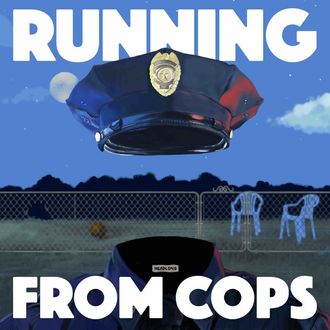
The camera often lies, or at the very least obscures. That idea is at the heart of “Running From Cops,” the third season of documentarian Dan Taberski’s Headlong podcast. It follows last year’s gorgeous end-times-study-meets-memoir “Surviving Y2K” and 2017’s delirium-catalyzing “Missing Richard Simmons.” It’s also his most journalistically pressing effort, tackling one of America’s thorniest epistemological quandaries: policing and the media.
“Running From Cops,” which was produced at around the same time as “Surviving Y2K,” takes the form of a six-part sociological examination of Cops, the reality-television phenomenon, still going strong, that debuted three decades ago, developed a massive broadcast following, and forged an undeniable legacy. Cops provided viewers with the voyeuristic thrill of a viscerally “real” look into everyday policing, delivering the goods in the form of vérité shaky-cam footage. Of course, American reality television being what it is, the world of policing as presented in Cops was essentially a crudely moralistic fun-house-mirror version of the real deal.
Illustrating that discrepancy makes up the meat and potatoes of Taberski & Co.’s efforts in “Running From Cops,” and the team digs into the task with painstaking aplomb. They watched hundreds of hours of Cops episodes to create an analyzable database of televised arrests. They interviewed onscreen and offscreen protagonists: producers, police officers, people arrested on camera. They talked to media-studies professors and critics to unpack the show’s many complicated layers of meaning. All this in order to sketch the complex web of incentives, power, and motivations that fuel Cops’ bizarre existence. How, exactly, does something like this come to be? How did it become so influential? And what has it done to the people it’s touched?
What Taberski and his team find is unsettling, though perhaps not shocking. It should come as no surprise that Cops portrays hard-luck communities and communities of color as more characterized by criminality than they actually are, and that it reinforces conceptions of certain groups as being distinctly delinquent. Where “Running From Cops” does feel especially revelatory is in the way it details the nuts and bolts of how the show is made. For example, the police forces depicted often have the power to sign off on final edits. Indeed, “Running From Cops” paints the relationship between the show and the police as virtually a full creative partnership (#brandedcontent, anyone?).
In the third episode, Taberski discusses a moment a few years ago when Cops was criticized by a civil-rights group and others for disproportionately portraying black and brown individuals as criminals. The show responded by ramping up ride-alongs in largely white communities like Portland, Oregon, and Spokane in a “frantic search for … white criminals, white hotheads, white trash, white something, you know?,” in the words of Stephen Chao, one of the executives who green-lit the show. Such a strategy did ultimately bring the show’s depiction of criminality more in line with national averages. But, as Taberski points out, it’s a wildly inelegant solution.
Understandably, “Running From Cops” often feels like it’s merely scratching the surface of a much larger problem. Cops, along with its equally problematic descendant Live PD, is the distillation of a toxic combination of corporate interest and state propaganda. And though I might miss the absence of a more personal narrative, of the kind that characterized Headlong’s previous seasons, Taberski’s structural investigations yield important insights into our relationship to law and order in this country.


